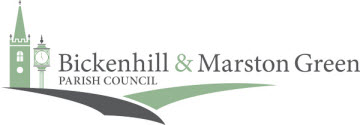The effects of air pollutants on the body are already well known, and can make existing conditions, such as respiratory disorders even worse. However, new research shows air pollution exposure can also make COVID-19 symptoms even more severe. In light of this, we need to do all we can to protect ourselves and others from pollution exposure especially at this time. We have therefore decided to update our Bonfire Code of Practice.
Since the COVID-19 lockdown restrictions Solihull Council’s Environmental Compliance team has seen an increase in complaints concerning bonfires as a result of the burning of green garden waste.
Although there is no specific legislation prohibiting garden bonfires, COVID-19 is a respiratory disease so we are asking residents to avoid lighting bonfires which can make breathing difficulties worse.
In addition, there is a risk of fires getting out of control placing further strain on our already stretched emergency services.
Although we have every sympathy with people’s inability to dispose of garden waste at this time, Solihull Council positively discourages people from lighting bonfires.
If you still wish to light a bonfire, please follow the Council’s guidelines, which are:
- Do not light a bonfire before 8 pm and extinguish it by 10pm
- Do not light a bonfire if a neighbour is using or is likely to use the garden
- Do not light a bonfire if there is washing on a neighbours’ line
- Do not light a bonfire if neighbours’ windows are left open
- Do not light a bonfire if the weather is wet, windy or misty.
- Do not burn wet material
- Do not leave a fire smouldering
- Do not burn household waste, plastics, rubber or any other material, which could cause dark smoke or harmful combustion products
- Do not allow smoke to blow across a road
Remember to build it as far away from neighbours’ properties as possible, away from fences, hedges or other combustible materials which might catch fire accidentally.
Ensure you attend the fires at all times and have plenty of water ready.
Bonfires can cause a statutory nuisance, so continually monitor whether the fire might cause annoyance and extinguish it if there is potential for nuisance.
While a single event is unlikely to meet the criteria of a statutory nuisance, householders having multiple regular bonfires which are likely to cause such a nuisance will be investigated. This could result in a fine of up to £5,000.
